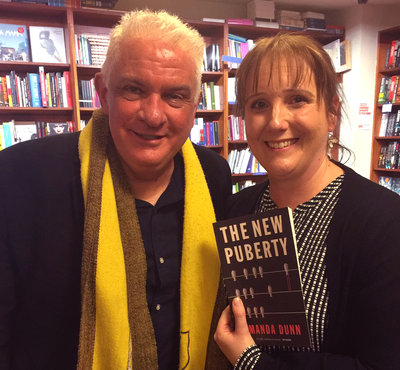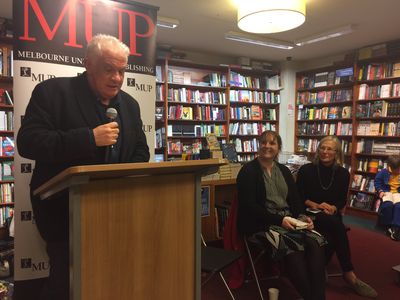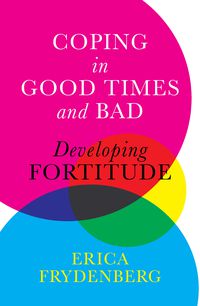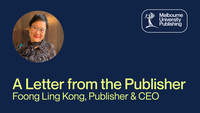Michael Carr-Gregg says The New Puberty is a game-changer
A guest post by Michael Carr-Gregg

Dr Michael Carr-Gregg writes about the new book from Amanda Dunn, politics and society editor at The Conversation, and why The New Puberty is such a game-changer.
It was Rick Springfield, who once said, “other than dying. I think puberty is probably as rough as it gets”. As a child and adolescent psychologist, I’m constantly imploring our politicians and the bureaucrats to have a developmental perspective when it comes to developing policy around our young people and understanding their journey.
At a time when youth suicide in Australia is at a ten-year high – the girl youth suicide rate has doubled in a decade and one in five young women are self-harming – I am delighted that a journalist as respected as Amanda Dunn has used her personal and professional skills to shed light on this incredibly tricky developmental phase.
In 30 years of clinical practice, I struggle to recall a generation that is as unhappy, stressed and anxious as this one. At a time when a young person’s identity and sense of self are the most fragile, they face more potential rejection and judgement than the most robust of egos can handle, courtesy of Instagram and Snapchat, the digital coliseums in which they daily engage in the battle of the selfies. Never before have we needed adult carers with the skills, knowledge and strategies to provide our young people with the love, stability, routine and regularity that they need. To be role models of self-reliance and self-acceptance.
I still recall a young woman not so long ago earnestly telling me that it was a fact that she could not get pregnant as long as she had a band-aid over her belly button! We clearly have a long way to go.
There are five reasons why I think that this book is so valuable and a real game changer.
First, Amanda breaks the silence on a topic that parents, schools and governments are uncomfortable discussing. She acknowledges the cultural reticence around puberty and gloriously smashes the taboo around both the subject and the developmental compression that pushes young people into adulthood before their hearts and minds are ready.
Second, she discusses one of my favourite topics, the early sexualisation of young women. Emma Rush called it corporate paedophilia – the actions taken by corporations who sell products to children in a sexualised way – essentially the stealing of childhood. You acknowledge that this premature sexualisation erases the line between who is and who is not sexually mature and as such may undermine the important societal norm that children should be sexually unavailable. I recall vividly in 2010 going on 3AW and calling for a nationwide boycott on Best and Less for selling a push-up bra for six-year-olds. A day later it was withdrawn from sale – citing a labelling error.

Third, while she succinctly summarises the latest research from eminent scientists like Professor George Patton and the Australian Institute of Family Studies, she points out that as far as the changes in puberty that we are observing, we still have more questions than answers. Her book is a clarion call for more research in an area that requires rigorous scrutiny.
Fourth, Amanda echoes a call made by many child and adolescent psychologists to start sexuality education in schools earlier and to make sure that it is more than plumbing and diseases. I still recall a young woman not so long ago earnestly telling me that it was a fact that she could not get pregnant as long as she had a band-aid over her belly button! We clearly have a long way to go.
Finally, the launch of this book affords me the opportunity to express my thanks for all the articles Amanda has written over the years on child and adolescent development, many of which have been responsible for educating the public on important research findings. There is no point in the results of important research remaining between the covers of learned journals. We need Amanda to help us talk about the policy implications and she has – over the years – been a true ally in this respect.
So congratulations on this book and thank you for your inspirational contribution over the years.
This is an edited version of Dr Carr-Gregg's speech from the launch of The New Puberty.
Dr Michael Carr-Gregg is one of Australia's highest profile psychologists, author of ten books, broadcaster and a specialist in parenting, children, adolescents and the use of technology for mental health. michaelcarrgregg.com







